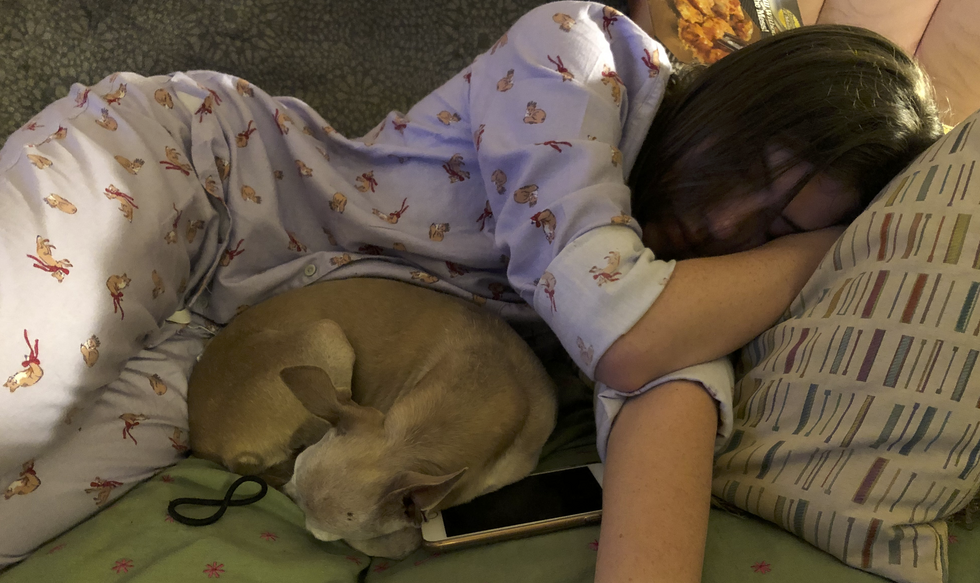We've all been there. It's the night before a huge exam, that takes up 25% of your final grade, in a class that you have racked up more absences than you or your poor professor could count. Or you have a paper to write, about who knows what, and it's suddenly due in two days. Or your friend invites you to a party that is a once in a lifetime opportunity, and she is almost positive that tall guy from her Biology class is going to be there and you just have to come for moral support, regardless of your 8 AM class the next morning.
In college, there are endless reasons to stay awake instead of getting a good night's sleep. But could these late nights be causing more harm to you than just the painful waking up the next morning? A 2011 study of Nigerian university students shows that a short duration of sleep can be linked to many harmful side effects, including tiredness, fatigue, and poor health.
According to the group of researchers from the Department of Mental Health at Obafemi Awolowo University, who conducted the study, the amount of sleep that students get is much less than the amount that adults typically achieve. They gathered results from six hundred and thirty-four students at Obafemi Awolowo University, Ile-Ife, Nigeria asking them to record the amount of sleep they got on a usual night. Their mental state was then assessed, through the thirty-item General Health Questionnaire, a commonly used test.
From the information gathered, the researchers quickly found a relationship between the amount of sleep obtained and the mental state of students. Naturally, getting more sleep left students feeling happier, more awake, and overall more prepared to take on the day than their sleepier peers. The less sleep a student got, the more susceptible they were to have negative health risks, especially EDS (!!!!!!).
EDS stands for Excessive Daytime Sleepiness, and it is shown by an increase in tiredness and fatigue even when a person would be expected to be awake, according to the researchers. Sound familiar???
Participants were evaluated for EDS. In students, EDS can be prevalent during classes when they should be awake, affecting academics negatively. EDS sufferers are probably not paying full attention during lectures, need naps throughout the day, and even have a greater risk of depression.
A significant relationship has been discovered between EDS and severity of depression, suggesting that a loss of sleep is very often going to be accompanied by a change in emotional state. In a recent study, a staggering 44.8% of depressed patients were also experiencing problems with EDS. The researchers stated that the correlation value between EDS, sleep duration and psychopathology (scientific word for mental disorders) was 0.47, which means a moderately strong relationship, for those of you who slept through Stats 101.
If you are somehow still not convinced that you need your full eight hours, the researchers have also suggested, "Short sleep duration has been found to reduce cognitive and behavioral functioning, and to be associated with poor health status."
The phrase "too tired to function," is absolutely the case. By depriving yourself of necessary sleep, you are denying your body the ability to function properly. The researchers even state, "Short sleep duration also increases the risk of motor vehicle accidents." So, not only is a deprivation of sleep harmful to you, but it increases the risk that you'll cause a car accident, putting others in danger.
Of course, staying up late is not always a terrible thing, no good stories end with "and we were all in bed by 9:00." However, making a habit of sleepless nights is now scientifically proven to be terrible for you. So, next time you have the option to stay up late doing schoolwork, remember that a good night's sleep is just as beneficial to your grades as is cramming work in the night before. Or, of course, you could always just get your work and studying done in a timely manner so you are not tempted to pull all-nighters right before assignments are due--but where's the fun in that?
















